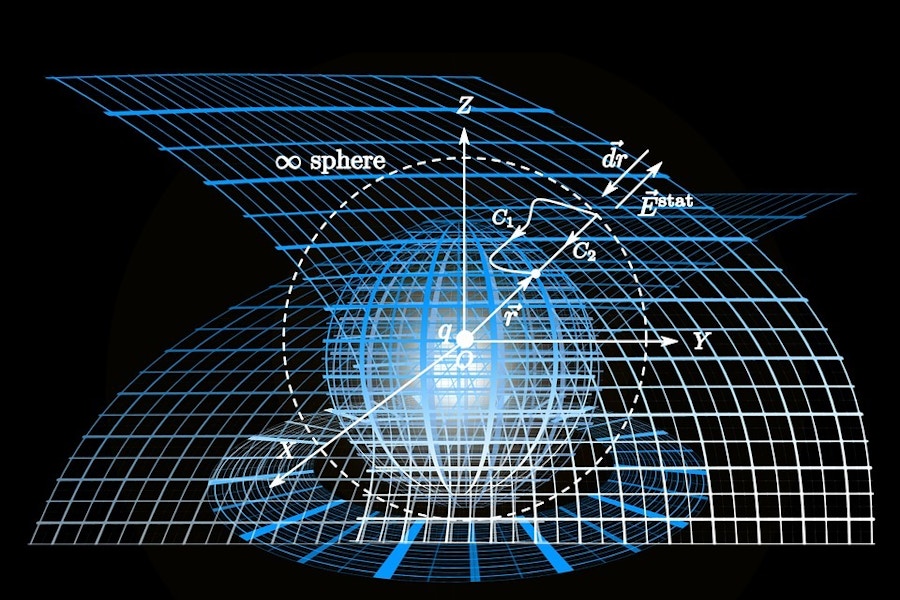In this blog, I want to explore another meaning of “mystery” that is crucial for our understanding of the mystery of God. Recall that so far I have discussed two meanings of mystery, each valid in their own way for dealing with certain kinds of mystery: investigative mystery and revelational mystery. Now it’s time to ponder a third sense of mystery, one more radical and therefore more elusive and difficult to portray.
Let’s begin with an analogy. Picture in your mind a simple, everyday circle. A circle is not, by ordinary geometrical standards, a very mysterious thing. It typically does not resist or defy explanation. With only a little mathematical knowledge, we can grasp lots of things about a circle, whether these concern its circumference, diameter, and so on. Human reason, in this case exercised in the logic of mathematics, surely is applicable in understanding a circle, and with reason’s application any mysteries connected to circles can be resolved.
Now consider another sense in which a particular circle might be a mystery. Suppose the circle in question is not just a circle; suppose it is the end of a cylinder. Further suppose that we call in an expert geometer to analyze our cylinder, someone we might call a Flatlander. The problem? Our Flatlander exists and perceives in only two dimensions (length and breadth, but not depth).
This is a very peculiar and difficult situation, indeed. We place our cylinder before him and he pays diligent attention to it. He can make all of the same calculations about the cylinder that we have previously made. In principle, he can know everything two-dimensional about the cylinder there is possible to know. After all, our Flatlander is an expert in two-dimensional figures. Yet for him, there is still “more” about the figure that remains — indeed will always remain — outside his two-dimensional perception. The third dimension, the very dimension that makes our cylinder a cylinder, will always lie beyond our Flatlander’s perception and awareness.
So, there is “more” — a third dimension — that will remain entirely beyond the knowledge of our Flatlander. It will always remain a kind of mystery to him. How could we explain this “more” to him if we had the opportunity? Unless he takes our word for it, we remain in quite a quandary. The “more” of the three-dimensional cylinder involves an unanticipated overthrow of all the categories that a two-dimensional geometer has available to make sense of his world. This third dimension is a radical transcendence, not just of the individual circle but of two-dimensioned geometry itself.
We are looking — along with our Flatlander — at a dimensional mystery. There is an abundance to a dimensional mystery — we might even call it a superabundance — that transcends but does not invalidate rational exploration.
The only really clear instances where a dimensional mystery should occur are when a greater consciousness — think of God — is communicating with a lesser consciousness, such as that of human beings. The lesser consciousness, that of God’s image-bearers, lacks the perspective and clarity that God possesses.
Many Christian traditions readily refer to sacramental practices and rites (especially the Lord’s Supper or Eucharist) as “mysteries.” They mean that these practices are bearers of a significance or power or a depth that goes beyond their obvious rational content. The kind of mystery that lies behind these claims is evidently dimensional.
A dimensional mystery, then, is mysterious by virtue of an unimaginable depth or density that transcends our rational capacities and all of our other capacities as well. And to speak of the “mystery of God” is to insist that, for finite creatures like ourselves, God the Creator, the living God, is just this kind of mystery. But if so, how could God’s image-bearers ever come to know him? We’ll be considering a possible answer to this question in next week’s blog.
Catch up with all of Chris’s blog posts at Conversations with Chris.
This series has been adapted from Steven D. Boyer and Chris Hall’s The Mystery of God: Theology for Knowing the Unknowable. Hungry for more? Please visit Baker Academic for more information.


